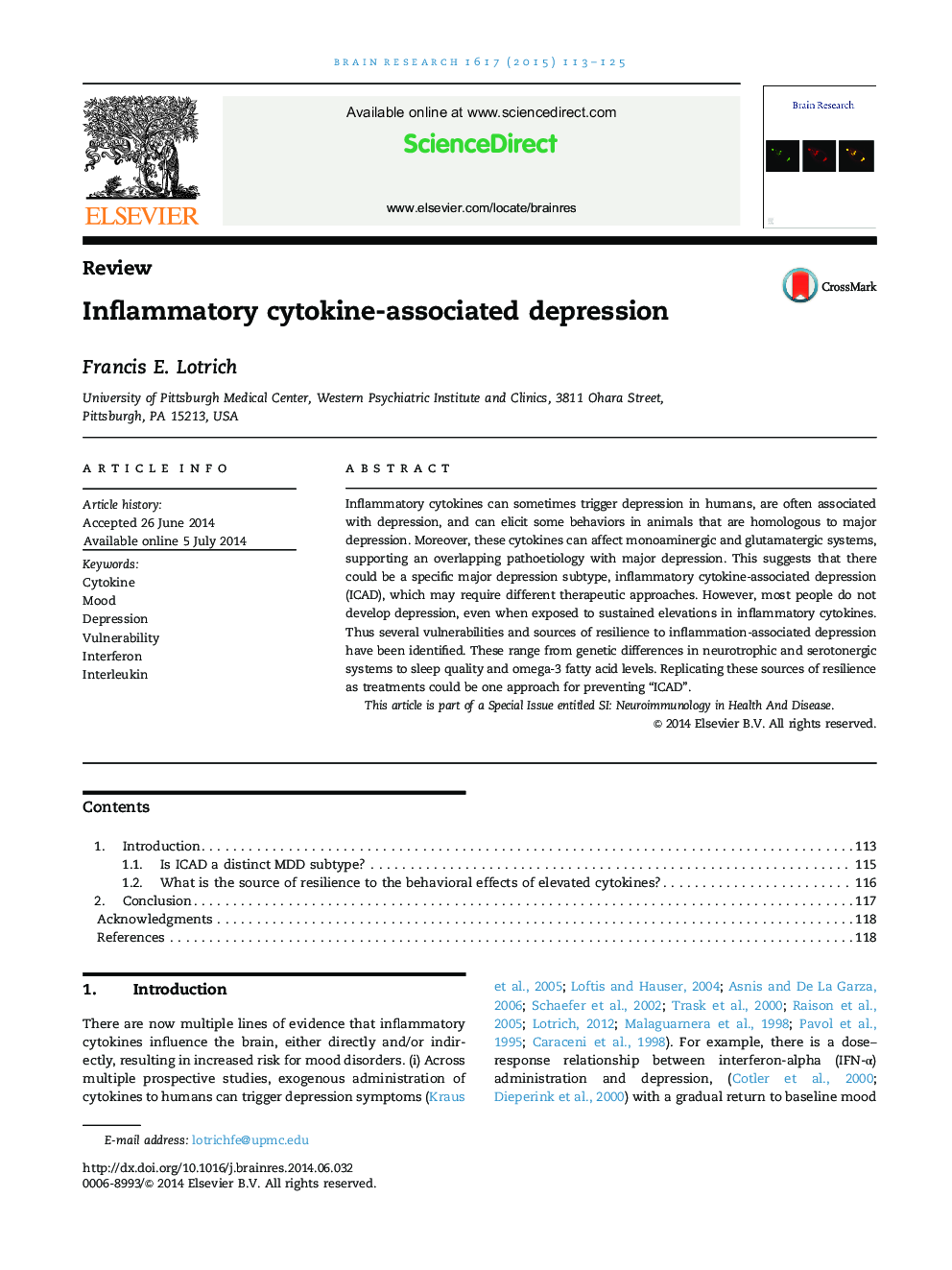| کد مقاله | کد نشریه | سال انتشار | مقاله انگلیسی | نسخه تمام متن |
|---|---|---|---|---|
| 6263096 | 1613822 | 2015 | 13 صفحه PDF | دانلود رایگان |
- Stress, obesity, gut flora, diet, and genetics can increase inflammation.
- Vulnerability to inflammation can result from decreased neurotrophic support.
- Other vulnerabilities include sleep quality, fatty acids, and genetics.
- In vulnerable people, this leads to effects on monoamines and glutamatergic systems.
- This can potentially result in inflammatory-cytokine associated major depression.This article is part of a Special Issue entitled SI: Neuroimmunology in Health And Disease.This article is part of a Special Issue entitled SI: Neuroimmunology in Health And Disease.
Inflammatory cytokines can sometimes trigger depression in humans, are often associated with depression, and can elicit some behaviors in animals that are homologous to major depression. Moreover, these cytokines can affect monoaminergic and glutamatergic systems, supporting an overlapping pathoetiology with major depression. This suggests that there could be a specific major depression subtype, inflammatory cytokine-associated depression (ICAD), which may require different therapeutic approaches. However, most people do not develop depression, even when exposed to sustained elevations in inflammatory cytokines. Thus several vulnerabilities and sources of resilience to inflammation-associated depression have been identified. These range from genetic differences in neurotrophic and serotonergic systems to sleep quality and omega-3 fatty acid levels. Replicating these sources of resilience as treatments could be one approach for preventing “ICAD”.This article is part of a Special Issue entitled SI: Neuroimmunology in Health And Disease.
Journal: Brain Research - Volume 1617, 18 August 2015, Pages 113-125
